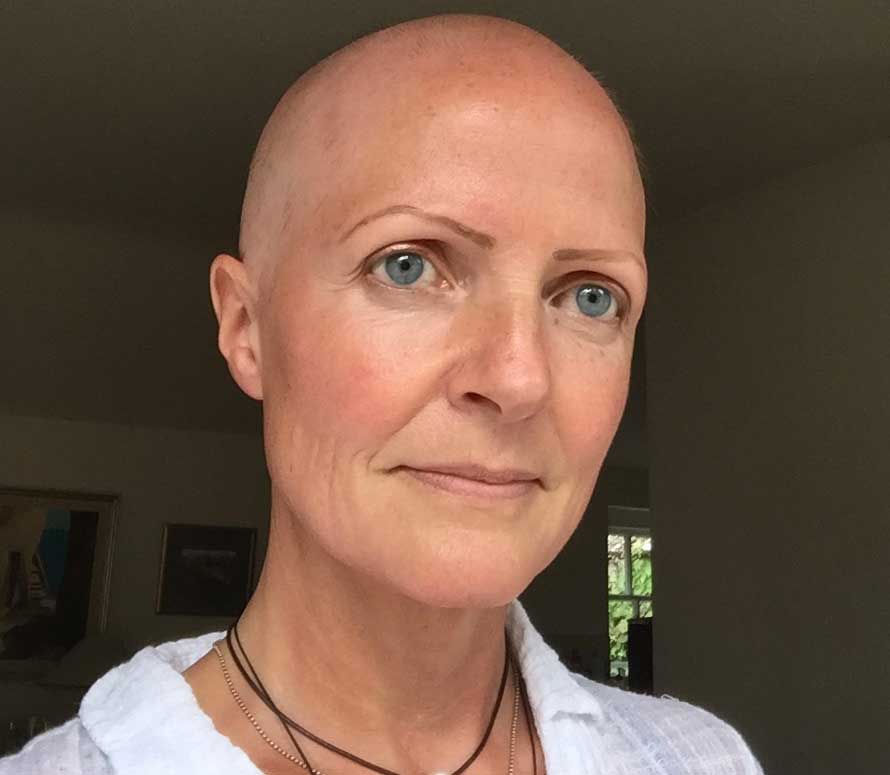I see Facebook friends post that they’re having a bad day, because their hair is not looking its best; it’s frizzy in the humid weather; they’re devastated by the new colour; they’ve had a catastrophic cut and colour. So they can’t leave the house.
I used to have the same reaction to disastrous hair moments, albeit not posting my hair concerns on facebook. I have on more than one occasion dissolved into a puddle of tears after having a ‘bad’ hair cut, or even worse having left the hair stylist with a tinge of orange in my newly coloured brunette hair.
That is until it all fell out from alopecia. My bad hair days became no hair days.
This has forced me to examine my attachment to my looks and in particular my hair. As a craniosacral therapist, I believe that our body serves to tell us what our mind cannot otherwise express. Pathologies arise as a last resort to tell us we need to change our behavior. And so, I have explored why my body chose to express its imbalance through my hair, or lack of it. Perhaps it is important to state also that conventional medicine reassured me that my hair loss wasn’t a symptom of a more sinister pathology.
What does it mean when our hair falls out? While it is important not to make generalizations, each person being different and having a different relationship to their hair, I do think it can be useful to look deeply into the psyche’s shadows, the unseen and often more challenging parts, to enquire what might be at the root of hair pathology.
Hair is an interesting thing. We can hide behind it, we can style it into whatever persona we choose, or we might metaphorically tear it out through frustration. From a depth psychological perspective, in other words exploring the unconscious elements of our psyche, hair can be viewed symbolically. We can see it as our strength, think Samson and Delilah, or it can be our thoughts growing out of our head, of our expression or our ideas perhaps. Many indigenous cultures don’t cut their hair because hair represents a continuation of the self and thoughts, some monks shave their heads as a ritual to signify giving up material things, including looks. From a physiological perspective, hair is connected to our animal or primitive part of our nature. The hairs on our body alert us to danger, they are an important part of our sense of touch. The more civilized we become the more we cut, tame, style, shave our hair and bodies, trying to distance ourselves from our indigenous sensuous nature. My hair used to be long, wild, and definitive of my personality; wild, free, and intuitive. Perhaps I have lost this part of myself.
As I ponder on my own body’s alopecia response, whatever its message is to me, whatever life change I need to make, I certainly know that it has changed my relationship to my looks. I can no longer hide behind my looks with my long beautiful hair. I have had to come out and say this is who I am on the inside. It is a vulnerable thing. There is no longer any hiding behind my prettiness. I have been stripped bare. I have nowhere to hide.
I tried to cover up my hair loss for as long as I could, hiding the ever growing bald patches with new hair styles and hats. Then I gave up. I saw the hair loss process as a stripping away of my old defensive layers that I could no longer rely on. It seems that I must express an inner self, including my ugly or shadow parts, express my own ideas, however terrifying that might be. Perhaps when I do this my long wild Leoine mane will grow back. Perhaps not. I have still much work to do, but I am slowly learning to face fears of showing my vulnerability and inner nature, and that is surely a good thing. To my mind, listening to the messages from our body is an essential practice if we are to fully evolve into our true self.
